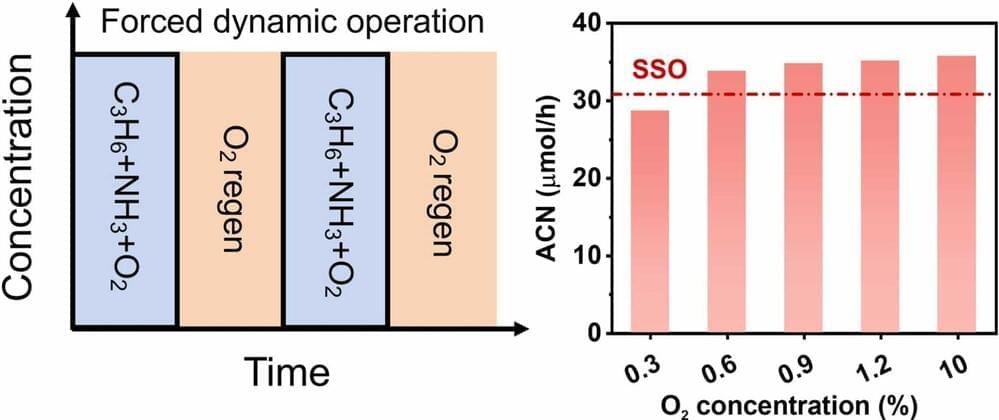A team of engineers is reimagining one of the essential processes in modern manufacturing. Their goal? To transform how a chemical called acrylonitrile (ACN) is made—not by building world-scale manufacturing sites, but by using smaller-scale, modular reactors that can work if they let the catalyst, in a sense, “breathe.”
Their article, titled “Propene Ammoxidation over an Industrial Bismuth Molybdate-Based Catalyst Using Forced Dynamic Operation,” is published in Applied Catalysis A: General.
ACN is everywhere, from carbon fibers in sports equipment to acrylics in car parts and textiles. Traditionally, producing it requires a continuous, energy-intensive process. But now, researchers at the University of Virginia and the University of Houston have shown that by pausing to “inhale” fresh oxygen, a chemical catalyst can produce ACN more efficiently. This discovery could open the door to smaller, versatile production facilities that adapt to fluctuating needs.
